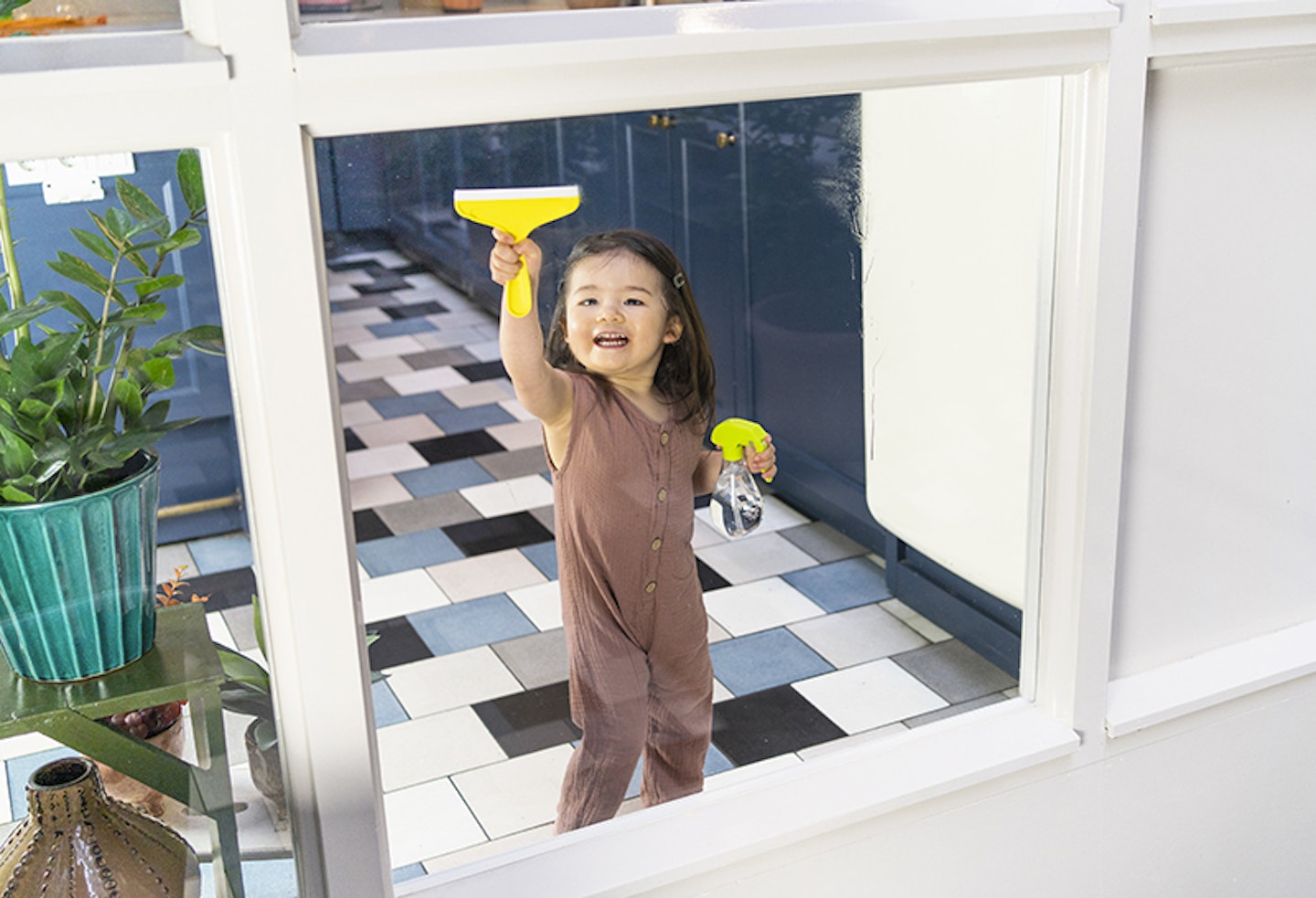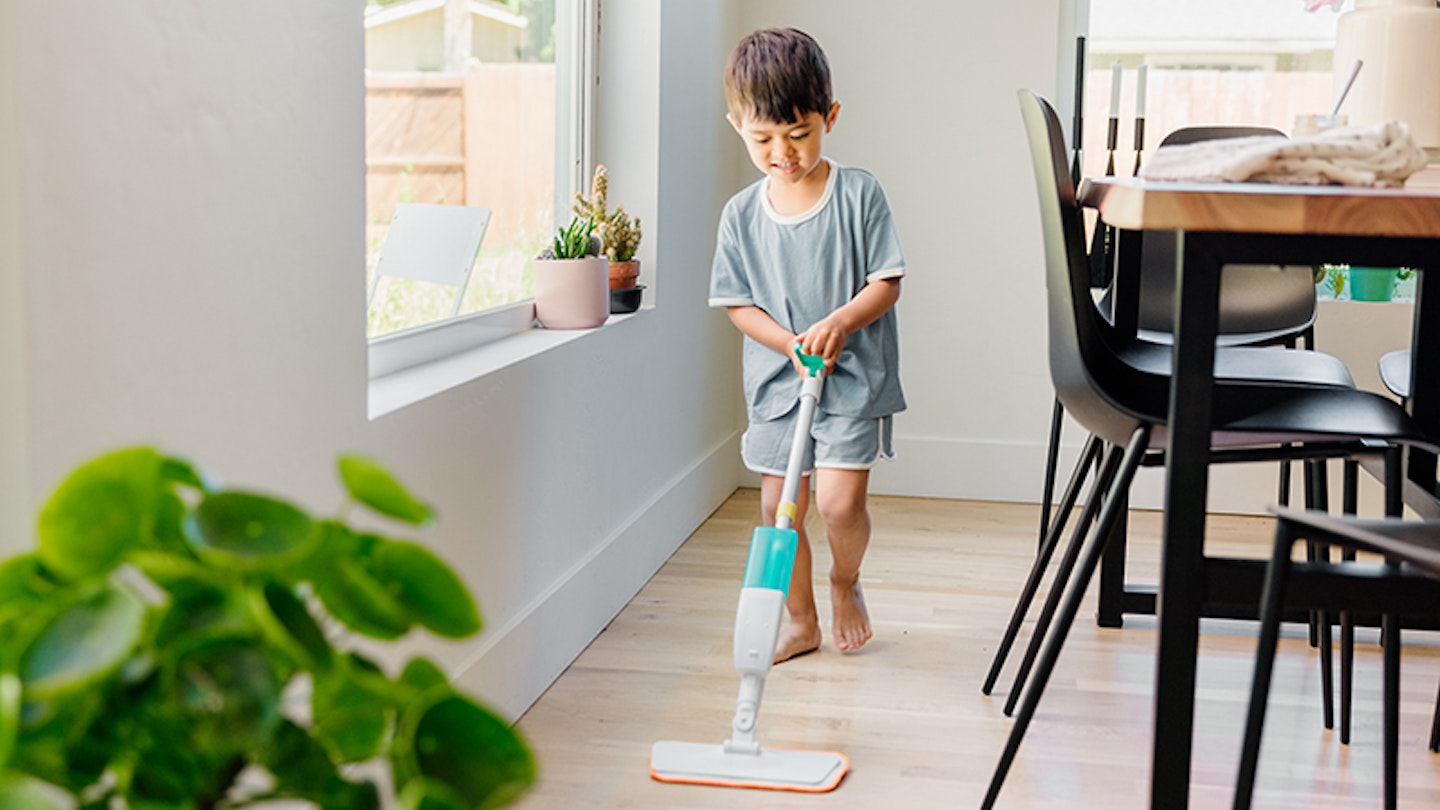Surprising though it may sound, children as young as 18 months — perhaps even younger, depending on the child — can start taking on regular household responsibilities.
Allowing children to perform everyday tasks themselves builds independence, confidence, and resilience. You may have already noticed them playing house in their role play, or using toys to mimic your chores around the house.
When we let our children push the lift or washing machine buttons, pour their water, and wash their hands, they’re practising how to operate in their own little world. In Montessori terms, this is called 'Practical Life'.
If your toddler is starting to show more interest in doing things for themselves or 'helping' you with household tasks, this is a great time to introduce practical life activities.
The experts at Lovevery have put together the following tips on introducing and engaging our babies and toddlers with everyday household chores:
Setting the table
As soon as your child can walk and reach the dinner table, they can start trying some basic table-setting tasks. For example, you can start by putting them in charge of napkins or spoons. Hand your little one a few at a time and give them a concrete directive of where to put it. For instance: “Put the spoon next to the plate.”
This will also help to create excitement about mealtimes, which can be a great help when continuing their weaning journey.
Cleaning
Invite your child to help you with household cleaning whenever they’re interested. To encourage them, you can ask if they would like to help with a specific task, for instance: “Would you like to clean a spot on this window?” If you have a glass door, low windows, or a full-length mirror, encourage your child to use their own small spray bottle to wet the glass. Narrate what they are doing by using action words like spray, mist, and squirt.

Putting things away
By 24 months, many toddlers have the motor coordination (as well as the interest) to put items where they belong. To set your toddler up for success, ensure they can reach the toy storage and keep a designated place for them to return certain items — a basket for blocks, another for stuffed animals, and a rack for books. A quick tip — if you label each basket with a picture of what belongs inside, this will help your toddler with this task.
Helping with laundry
Laundry is a universal, never-ending task, which makes it a great opportunity for your child to help. Young children love to open and close machine doors, put clothes in the washer or pull them out of the dryer, help you pour the soap (hand over hand), and twist knobs and push buttons on the machine. Sometime between 19 and 24 months, many children begin to match items of the same type. Choose contrasting socks and lay them out in front of your child—maybe two large ones and two small ones, ideally of different colours — and say, “can you find the socks that go together?”
Even babies as young as 8 months old can take part. Your baby is curious about everything and eager to learn and explore. This doesn’t mean just having your baby tag along — there is an art to narrating, explaining, and including your baby in what you are doing. Involving them in household tasks is a great way to nurture this interest and support their development.
5 ways to include your baby in household tasks
• While folding laundry, give them a sock to hold and name different pieces of clothing.
• Demonstrate how to clean the floor using a wet washcloth and then let your baby take a turn.
• Provide safe kitchen tools for them to investigate as you make dinner. Pots, pans, and spoons are great for banging!
• Give them paper to crinkle up while you pay a bill.
• Let them hold a small watering can (you will probably need to hold your hand on theirs) and water the plants together.
For the new Lovevery Play Kits visit Lovevery.co.uk
